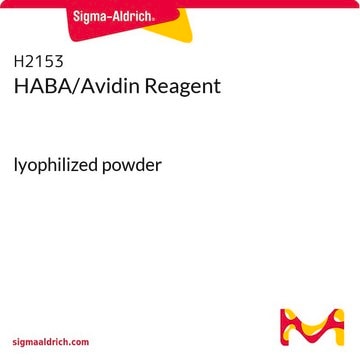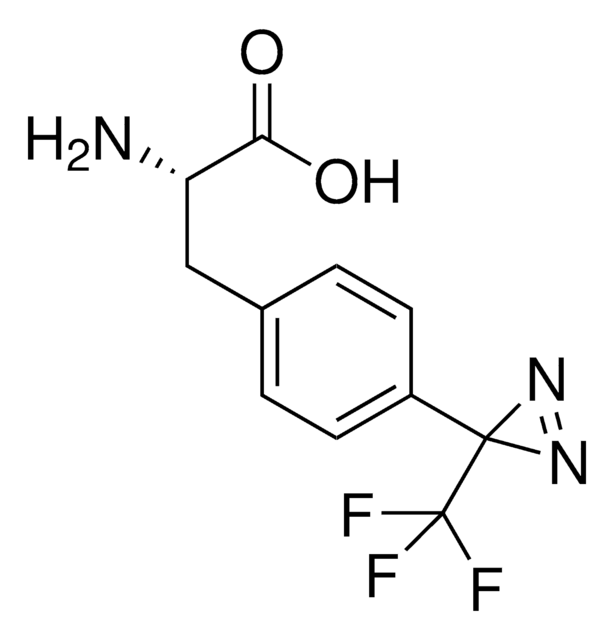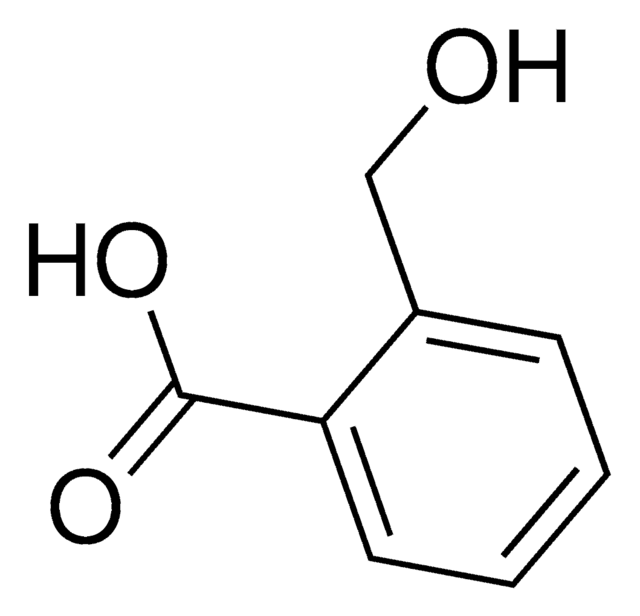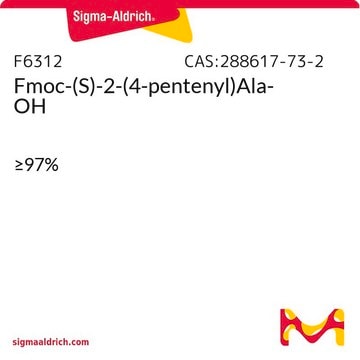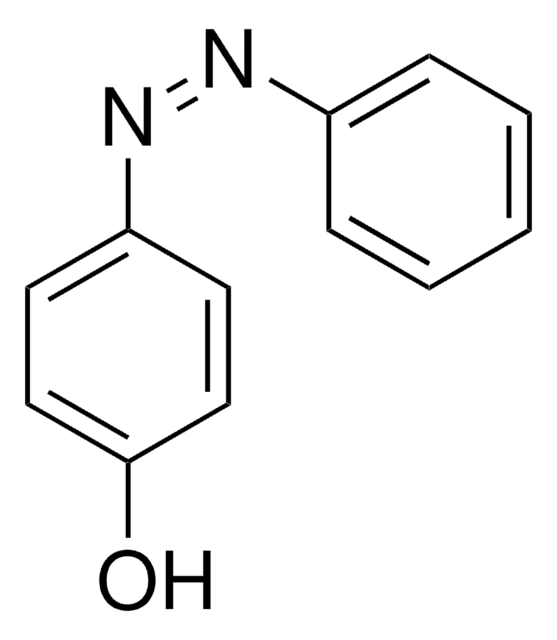H5126
2-(4-Hydroxyphenylazo)benzoic acid
≥90% (HPLC)
Synonym(s):
2-(4′-Hydroxybenzeneazo)benzoic acid, 4′-Hydroxyazobenzene-2-carboxylic acid, HABA, HBABA
About This Item
Recommended Products
Quality Level
Assay
≥90% (HPLC)
mp
204-208 °C (lit.)
solubility
ethanol: 20 mg/mL, clear to hazy, orange to very deep orange
SMILES string
Oc1ccc(cc1)\N=N\c2ccccc2C(O)=O
InChI
1S/C13H10N2O3/c16-10-7-5-9(6-8-10)14-15-12-4-2-1-3-11(12)13(17)18/h1-8,16H,(H,17,18)/b15-14+
InChI key
DWQOTEPNRWVUDA-CCEZHUSRSA-N
Looking for similar products? Visit Product Comparison Guide
Application
- 2-((4-(3,4-dicyanophenoxy)phenyl)diazenyl)benzoic acid
- 2,2′-((((4,5-dicyano-1,2-phenylene)bis(oxy))bis(4,1-phenylene))bis(diazene-2,1-diyl)) dibenzoic acid
- a multifunctional benzoxazine monomer
Storage Class Code
11 - Combustible Solids
WGK
WGK 3
Flash Point(F)
Not applicable
Flash Point(C)
Not applicable
Personal Protective Equipment
Choose from one of the most recent versions:
Already Own This Product?
Find documentation for the products that you have recently purchased in the Document Library.
Customers Also Viewed
Our team of scientists has experience in all areas of research including Life Science, Material Science, Chemical Synthesis, Chromatography, Analytical and many others.
Contact Technical Service
